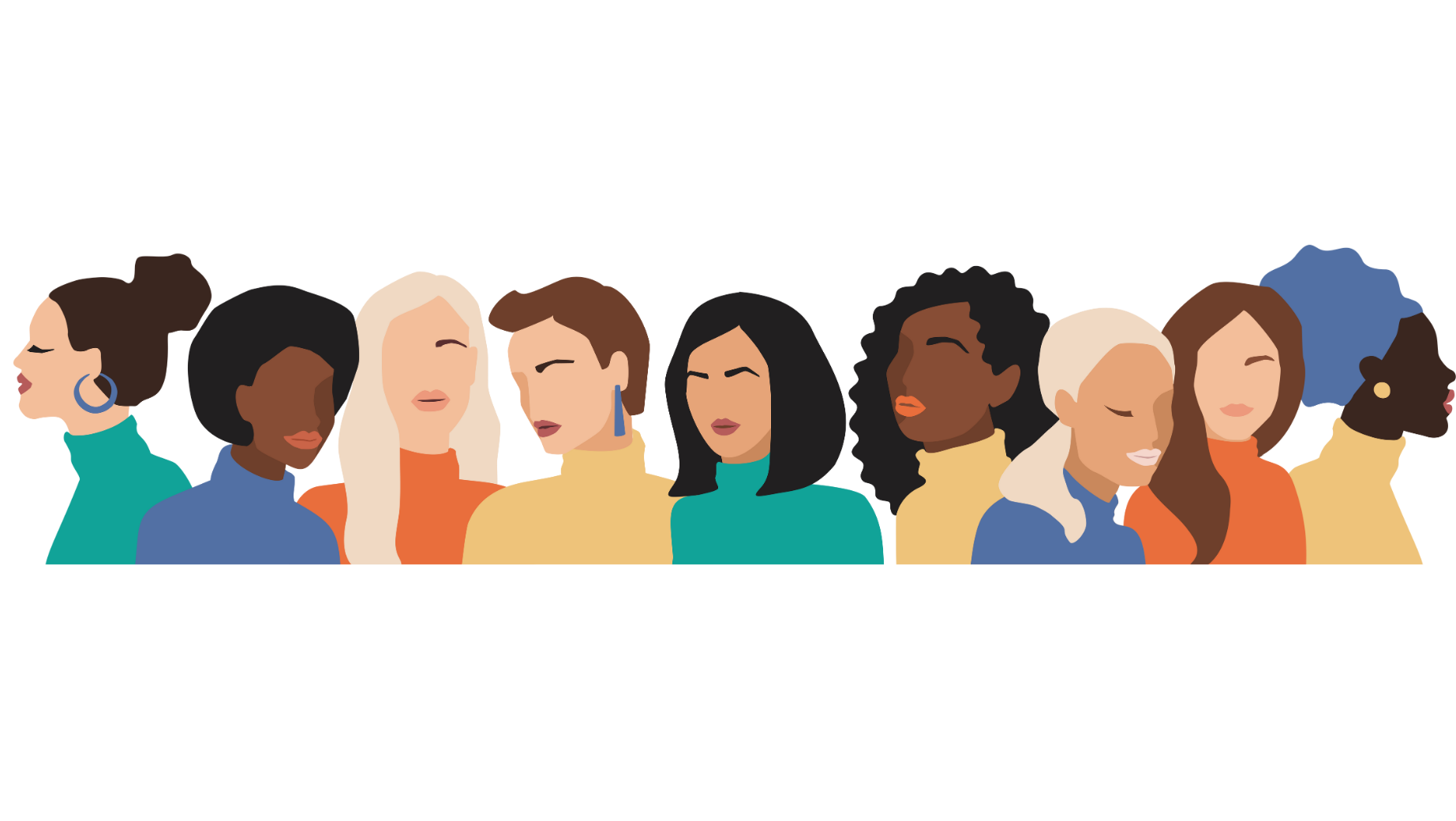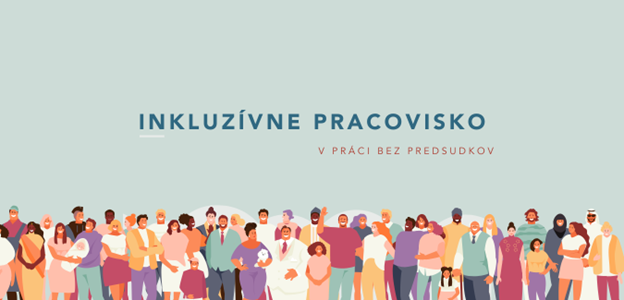OUR MARKS: Ženský algoritmus
20.9.2023
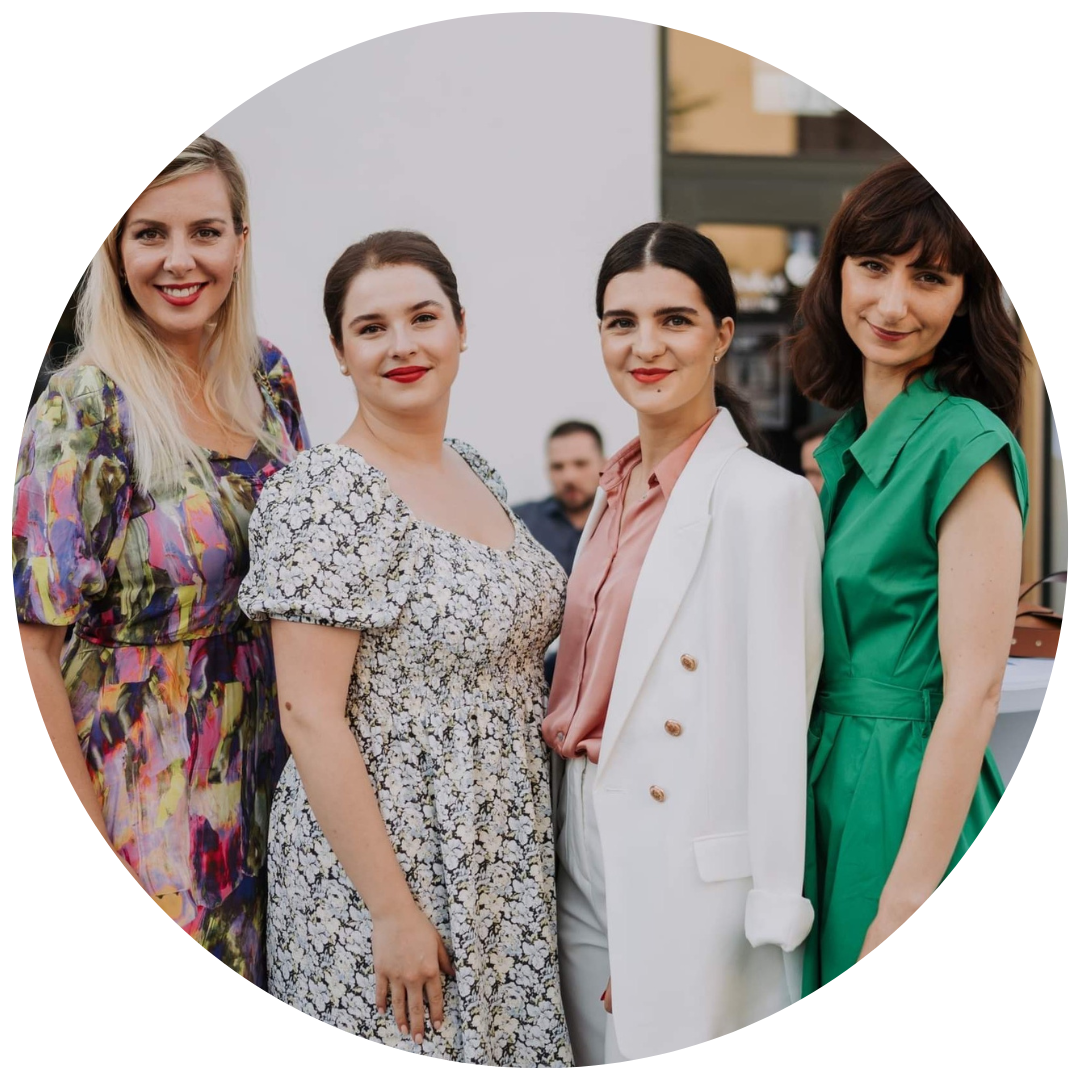
Lenka Hlinková (Co-Founder & Executive Director)
Zuzana Sotáková (Co-Founder & Program Manager)
Alžbeta Palkoci (Community & Partnerships Manager)
Simona Šimovičová (Project Manager)
How do you perceive the implementation of the project over time?
We perceive this project as a highly valuable experience; it was our first grant, and we continue to draw from what we learned during its preparation and implementation. A significant contribution for us was the collaboration with our bilateral partner, the Norwegian organization KUN (Center for Equality and Diversity), which specializes in the field of diversity and inclusion, discrimination, and equal opportunities in the workplace at an expert level. Our joint meetings not only led to the creation of educational content for the Inclusive Workplace project but also generated further stimulating ideas and plans for future cooperation. We remain in contact with the KUN organization and have attempted to secure two grants within the Erasmus+ scheme together. While both applications met the formal requirements, they were not approved due to a lack of financial resources within the scheme.
Although the Inclusive Workplace program is currently not actively promoted, the general public still has the opportunity to gain comprehensive information about the importance of inclusion in society, unconscious biases, the pillars of an inclusive work environment, and steps that support the development of a workplace open to various vulnerable groups and a positive work climate through a handbook, which was one of its outputs. The core ideas of this program have been incorporated into several educational activities that we are currently conducting. One of them is the Ready to Lead Academy, where one of the topics is inclusive management.
Overall, we consider the Inclusive Workplace project a successful and valuable endeavor for our organization. We have learned a lot and have also contributed significantly to our project partner. We have created useful content, gained a wealth of inspiration, and strengthened our partnership with the KUN organization.
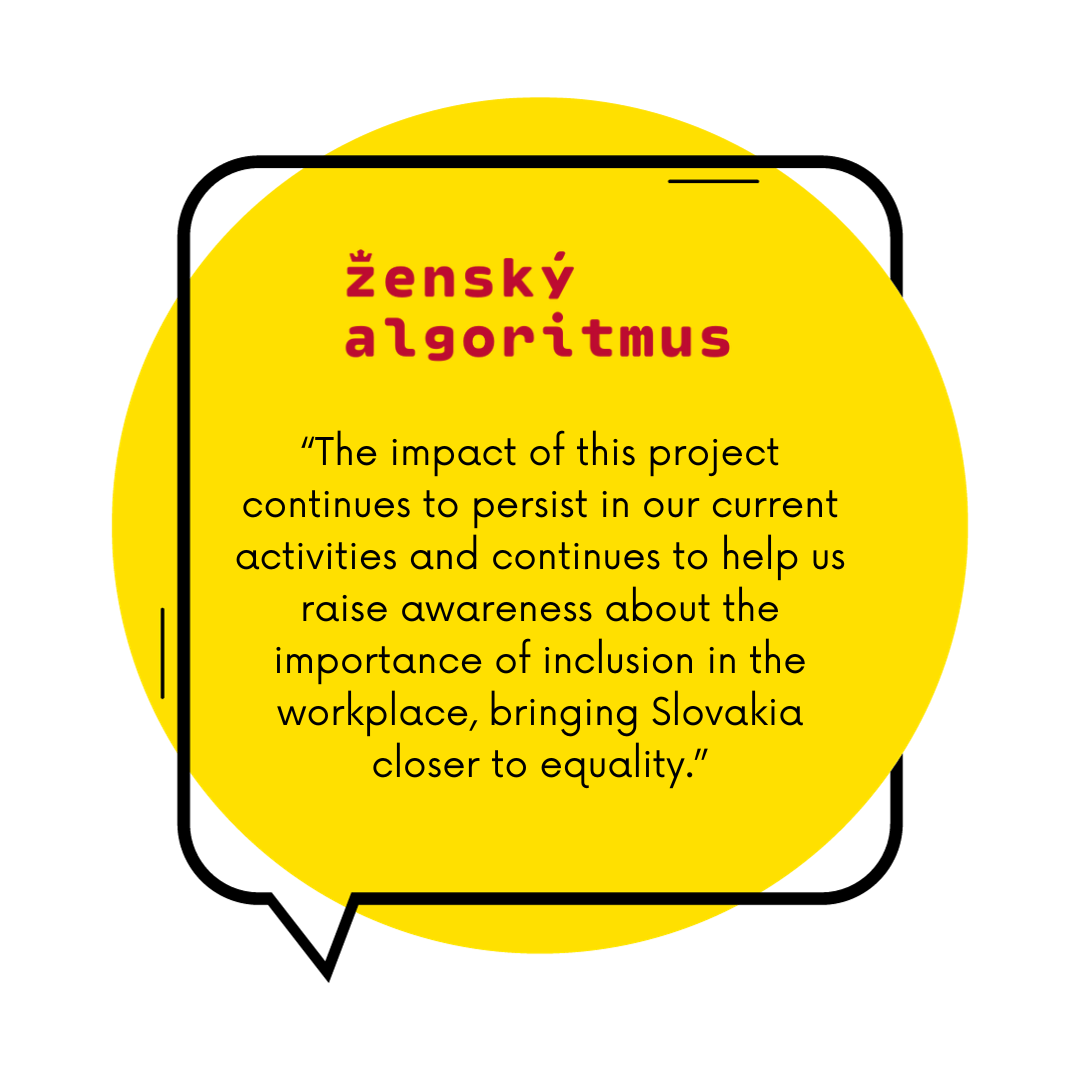
How has your project evolved after the conclusion of support from the Active Citizens Fund – Slovakia program?
After the support period ended, we made the decision to repeat the project at our own expense, which allowed us to increase the achievement of the project’s quantitative goals (the participation of various participant groups in the project). We view this decision as the right one because a higher number of participants applied for the second round compared to the first round. This only confirmed the interest in addressing this topic in society. After the program concluded, we continued to stay in touch with several active project participants (ambassadors) who disseminated key information from the program through training sessions in their workplaces. To further support public interest in this topic, we also prepared special newsletters that provided program participants and other enthusiasts with monthly updates on diversity and inclusion in the workplace.
What results have you achieved thanks to the project?
After the completion of two rounds of the Inclusive Workplace program, over 680 individuals have participated in the program. We prepared the Inclusive Workplace handbook primarily for managers, HR professionals, teachers, and trainers, but it can benefit the general public as well. The handbook remains accessible to anyone interested in this topic. Over the course of eight months, from February to October 2022, we prepared a special DEI (Diversity, Equity, and Inclusion) newsletter, which was sent on a monthly basis to almost more than a hundred subscribers.
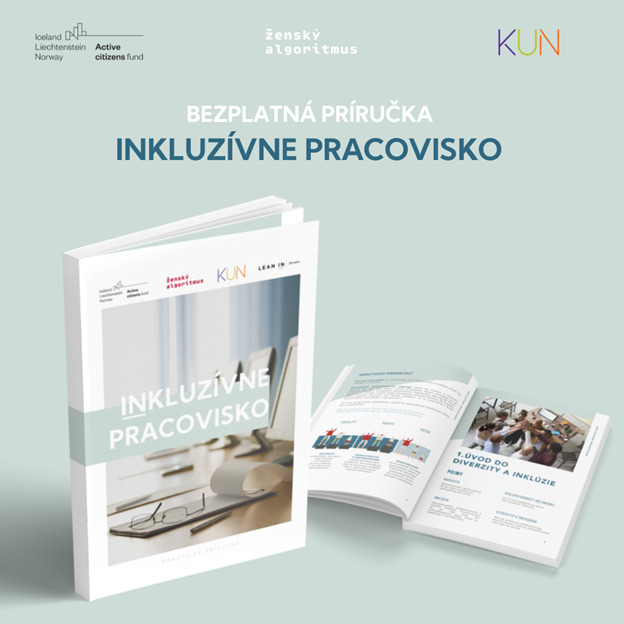
Have you been able to achieve the goals you set at the beginning of the project?
We were unable to achieve the planned goal for the number of people involved in the activities. As an outcome, we ambitiously set a relatively high number of participants as our goal, and we expected the active participation of ambassadors (successful graduates of the program) through training sessions they conducted to contribute to achieving this goal. This activity was one over which we did not have full control and was more of an impact of the project rather than an output. We attribute our incorrect estimation to our lack of experience in grant preparation at the time. This project was our first grant, and it provided us with a valuable learning opportunity, including learning from our own mistakes.
By repeating the project, we were able to meet the indicators sufficiently. We were pleased that the quality assessment of our education was so high. Perhaps this also contributed to the increased number of participants in the second round, and today we provide additional training in this area to businesses for a fee as part of the entrepreneurial activities of our nonprofit organization.
What was the impact of your project on the target groups and the community?
The course was designed for the general public and its content focused on identifying critical situations in the workplace that could manifest as (un)conscious biases, gender stereotyping, sexism, sexual harassment, or various dominance techniques. The education emphasized the development of participants’ critical thinking skills. We drew upon Slovak legislation and the best practices of both Slovak and international employers. Discrimination in the workplace begins with the writing of a job advertisement and continues through the entire employee cycle. Therefore, the course’s scope was broad and also aimed at practical techniques that enable HR professionals and managers to select the most suitable candidates based on their experience and required skills without the influence of harmful biases.
In both rounds of the program, over 680 participants were involved, including those who completed the course (218) and those who were trained as program ambassadors (462) in their workplaces or educational institutions. We are pleased that participants who successfully completed the program recognized the importance of this topic and were eager to initiate discussions about the need for an inclusive environment in their workplaces through informal education of their colleagues. We also consider the publication of the Inclusive Workplace handbook a success, as it contains essential information from each of the topics covered in the program. This handbook is still available to the general public and serves as a valuable source of knowledge in the field of diversity and inclusion.
Selected feedback from graduates of this project:
Thanks to these lectures, I can better argue at work and point out issues within the team. Incredible help…
“Considering that it was all free, hats off. High level, quality, willingness, and patience in answering questions. Excellent!!
My knowledge in the subject has increased by 200%, even in areas I thought I was proficient in, such as recruitment. I was also intrigued by the fact that you don’t look at the topic from just one perspective, and even when something appears to be discrimination, it may not be.
“The program exceeded my expectations, and I discovered that the issue is broader than I thought before.”
“I liked that the lecturers maintained a positive attitude with a smile throughout the entire time; this is very important, as well as interacting with the audience at least every 15-20 minutes to prevent the lecture from becoming boring.”
I appreciated the application of results from studies and research conducted in the Slovak labor market, as it’s difficult to find/get this information online. I also liked the interactive space for creatively answering questions.
What achievements have you attained thanks to the project and the support of the Active Citizens Fund – Slovakia?
The organization of the Inclusive Workplace project brought us rich experiences in several areas. Cross-border collaboration with the Norwegian non-profit organization KUN allowed us to acquire valuable knowledge in the fields of diversity, inclusion, discrimination, and equal opportunities. This collaboration provided us with insights into trends and best practices in these areas in a country perceived as one of the most advanced, not only in terms of gender equality and workplace inclusion.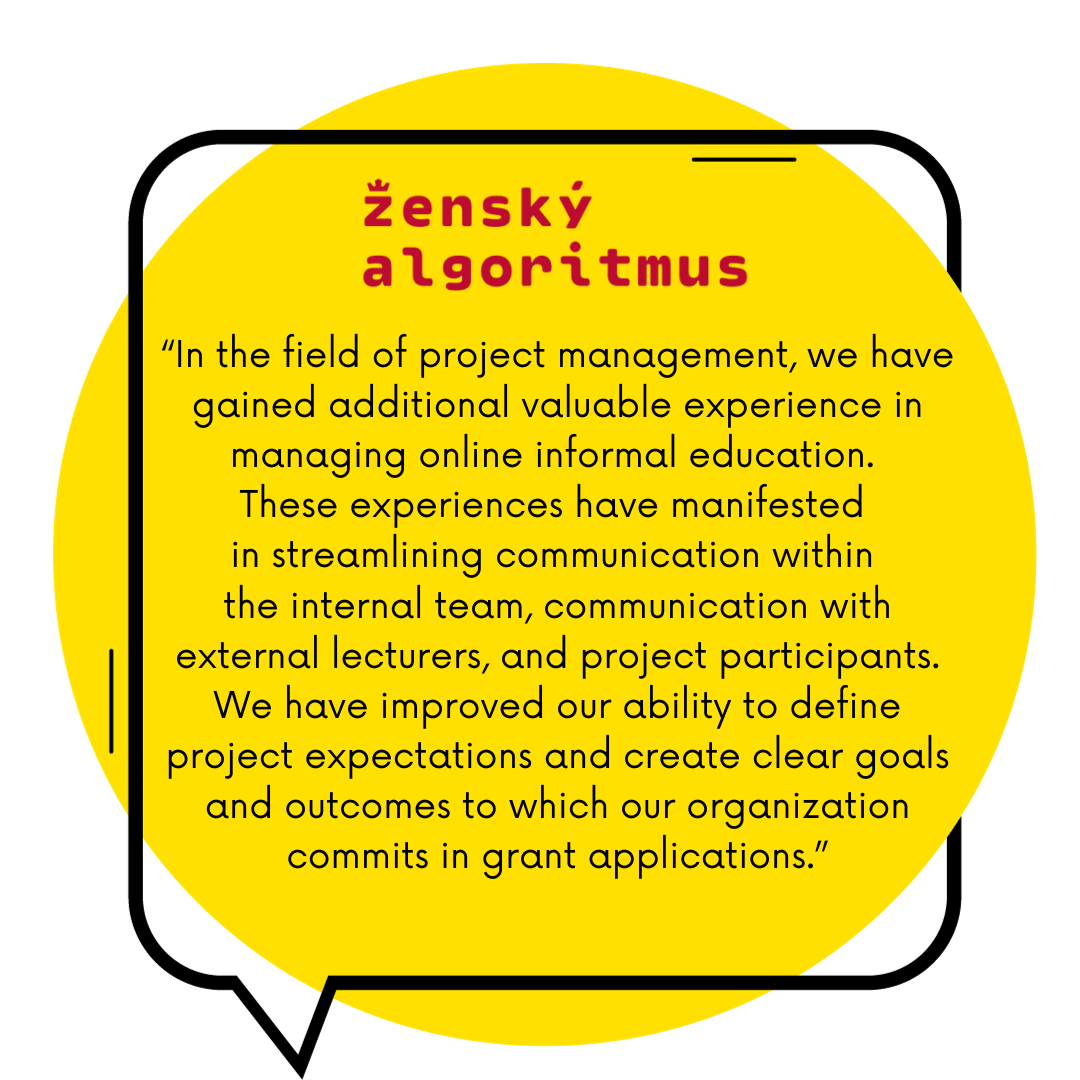
We also improved processes related to online education, including ensuring the smooth flow of education, interactivity of learning, and support for active participant engagement. We created a safe environment where participants had the opportunity to share their experiences, engage in discussions with experts, and apply theoretical knowledge to practical situations.
Additionally, the project helped us establish and build a project documentation and financial management system. The project also motivated us to communicate regularly with partners in English, thereby enhancing the language skills of several team members.
What specific benefits and opportunities has the Active Citizens Fund – Slovakia program provided to your organization?
The Inclusive Workplace project brought several significant advantages and benefits to our organization, positively impacting our activities and future endeavors in this field.
Collaboration with the Norwegian Center for Equality and Diversity (KUN), which has extensive experience in the area of equal rights for vulnerable groups and workplace discrimination, was a valuable source of knowledge and know-how. We had the opportunity to gain a wealth of inspiration for future planned projects and enhance our understanding between our countries and cultures, particularly concerning labor legislation and corporate cultures.
The project provided us with our first positive reference for our non-profit organization in this field and opened doors to further international collaborations. Our founder and director, Lenka Hlinková, who was also the project’s expert guarantor, received an offer to work as an External Gender Equality Expert for the Ministry of Labor, Social Affairs, and Family. In 2021-2022 (1.5 years), she worked on an Analytical Study of the Costs and Benefits of Implementing Gender Equality in the Labor Market and, along with her team, produced a set of documents offering practical ways and reasons for Slovak employers to harmonize their employees’ private, work, and family lives. We consider this activity as the starting point for our organization’s advocacy work.
Within the project, we had the opportunity to collaborate with lecturers who are experts in the areas they presented. This not only strengthened the expertise and quality of the program but also expanded our network of potential collaborators for our future activities.
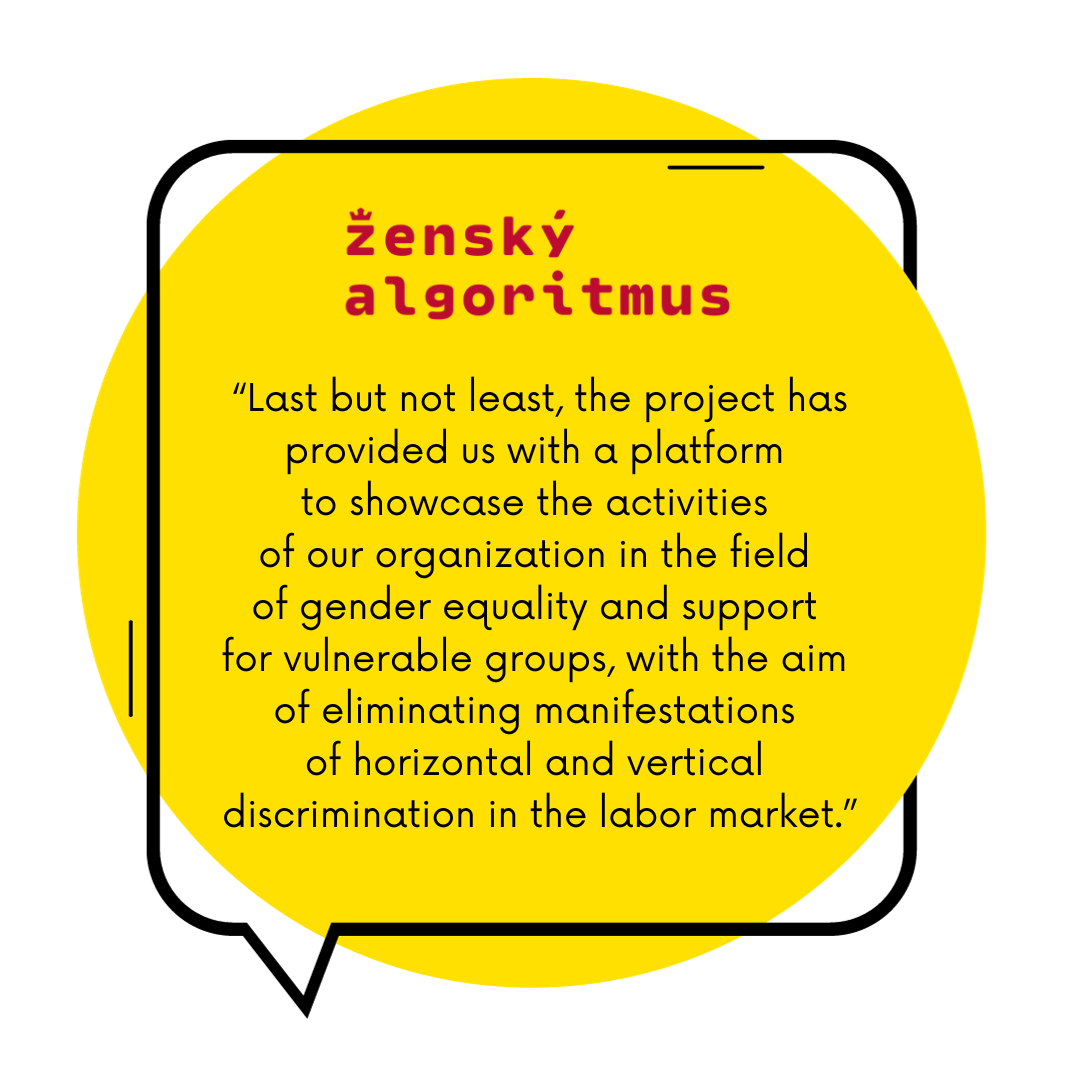
This opened doors to additional opportunities and partnerships. The project contributed to raising public interest in diversity and inclusion topics, and despite numerous criticisms of our project on social media, we consider its promotion to be useful and effective.
How do you assess the collaboration within the Active Citizens Fund – Slovakia program?
We highly value our collaboration with ACF, and the communication has always been very accommodating and fair, with transparent expectations. We also appreciate the pre-communicated approach to final reporting. Based on our experiences with 30 other grant projects that we have delivered since then, this is not always the norm.
Thanks to the project, most members of the project team were able to work together, and due to continuous fundraising, we were able to keep them in the team for the long term.
From our DEI activities within our association Ženský algoritmus, a new brand is currently emerging in the third quarter of 2023 – Skilloria, with its own website and social media presence. This is because, in addition to our education of women in digital skills and management, they deserve special focus and space. The target audience extends beyond just the female population.
We shared best practices from this project with newer non-profit organizations and civic associations. Given that the project took place during a pandemic, the online format was a safe space and allowed us to reach groups that we would not have been able to engage with through in-person lectures. The subsequent conflict in Ukraine and the current political and social atmosphere in Slovakia only confirm that these topics are extremely necessary for sustainable democracy, solidarity among the population, and the integration of foreign talents in Slovakia.
